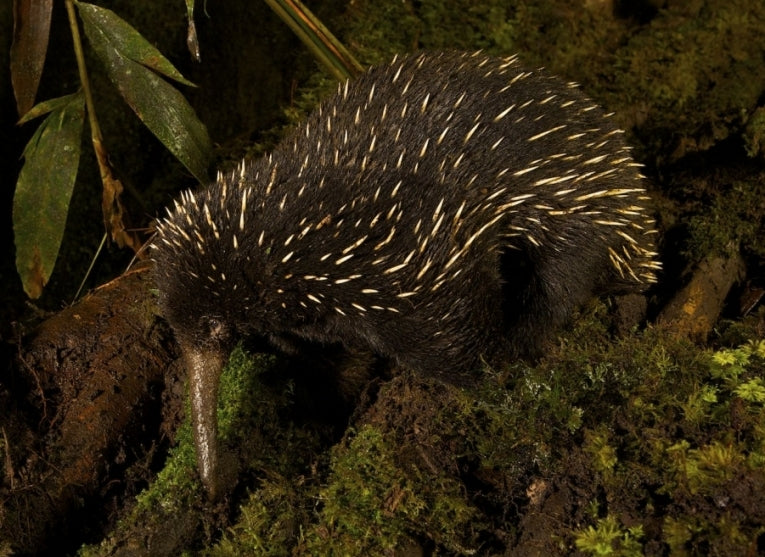Thousands of years ago, in the aboriginal "dreamtime", Australian echidnas mainly died out, leaving just one short-beaked echidna alive throughout the continent at the moment. This story really requires you to know that the monotremes are, even before the marsupials, the most simple of all mammals in their reproduction. If that's OK, I will continue with the dreamtime approach, because the few monotremes left have always been the cause of some confusion, like the duck-billed platypus.
Across the Arafura Sea in Papua New Guinea, the western long-beaked echidna, Zaglossus brujinii, survives still, owing to a lack of human colonisation in its habitat. Now, thanks to an early expedition to Mount Anderson in West Kimberley by John T. Tunney, a similar specimen has revealed that in 1901, it was living there, when it had been supposed extinct for tens of thousands of years. Four species of echidna survive today, with Z. brujinii the biggest of three long-beaked species.
Professor Kristofer Helgen and several colleagues from the Smithsonian Institution in Washington, DC, in the US, has used information gleaned from the NW Australian specimen from 1901, thanks to its preservation within the London Natural History Museum (as well as a Rothschild Collection). He kindly sent us a whole lot of photographs to illustrate his fascinating paper and the fact that we may have a surprise soon in Australia, hopefully during 2013. The paper is available for you in the journal ZooKeys.

The short-beaked echidna, Tachyglossus aculeatus, has fared better than its long-beaked relative. It is found throughout Australia, where it is the most widespread native mammal; Credit: © Tim Laman
The basis of this story lies in the possibility - only a faint possibility - that this larger species could still occur in the distant bush of the Australian north. "The discovery of the western long-beaked echidna in Australia is astonishing. It highlights the importance of museum collections, and how much there is still to learn about Australia's fauna." That illustrative comment comes straight from Australian Professor, Tim Flannery of Macquarie University.
Monotremes are the most primitive extant mammals. They lay eggs like their reptilian ancestors. The long-beaked echidna is even more remarkable. Laying a leathery egg, it places it inside a brood pouch and incubates it, in the manner of, but quite distinct from, the marsupials which have a different "marsupium" pouch! The long-beaked genus, Zaglossus, is absent now from Australia, with only the single species of Tachyglossus aculeatus present.

Kristofer Helgen and long-beaked echidna in New Guinea; Credit: © Tim Laman
Great so far - that it's doing so well with all those cats and dogs and rats chasing native fauna. Now we can send aborigines and less-well-endowed scientific searchers to locate the long-lost species (that's the one at the top) near Mt. Anderson. Aborigine people within the Miriwoong Gadjerong tribe from Kununurra have already related memories of a similar beast they used to find. We can only hope the typical habitat hasn't been too down-graded by industry, cattle or sheep. Kristofer Helgen himself suggests that the rocky terrain and segments of "vine thickets and evergreen rainforest" could be concealing a prize worth finding.










